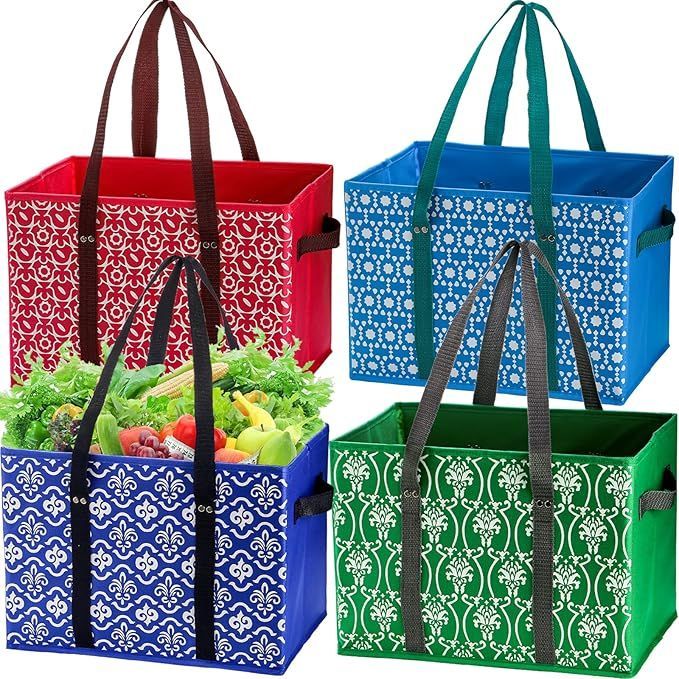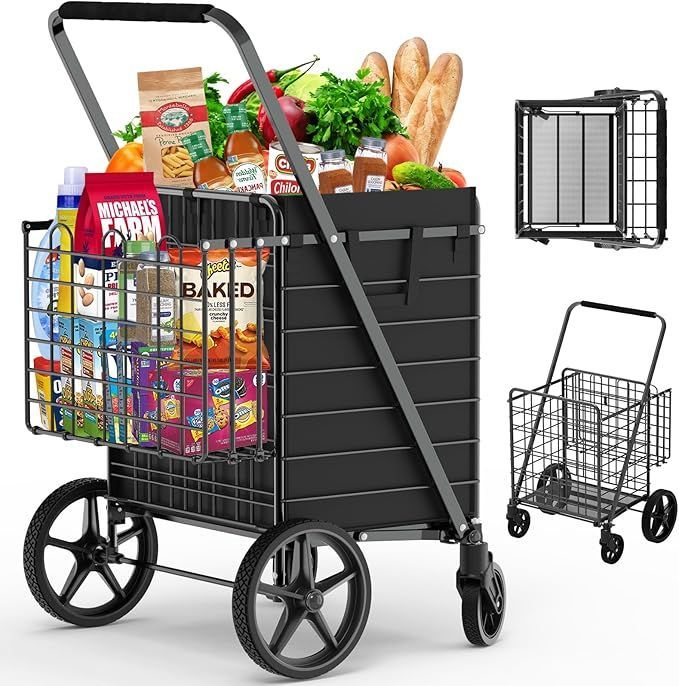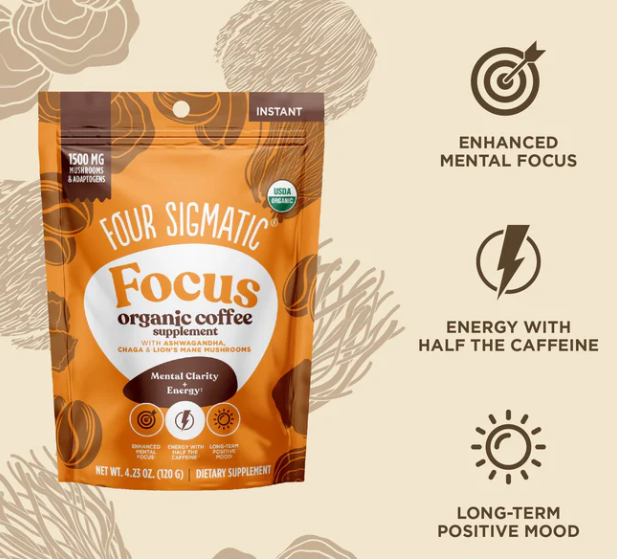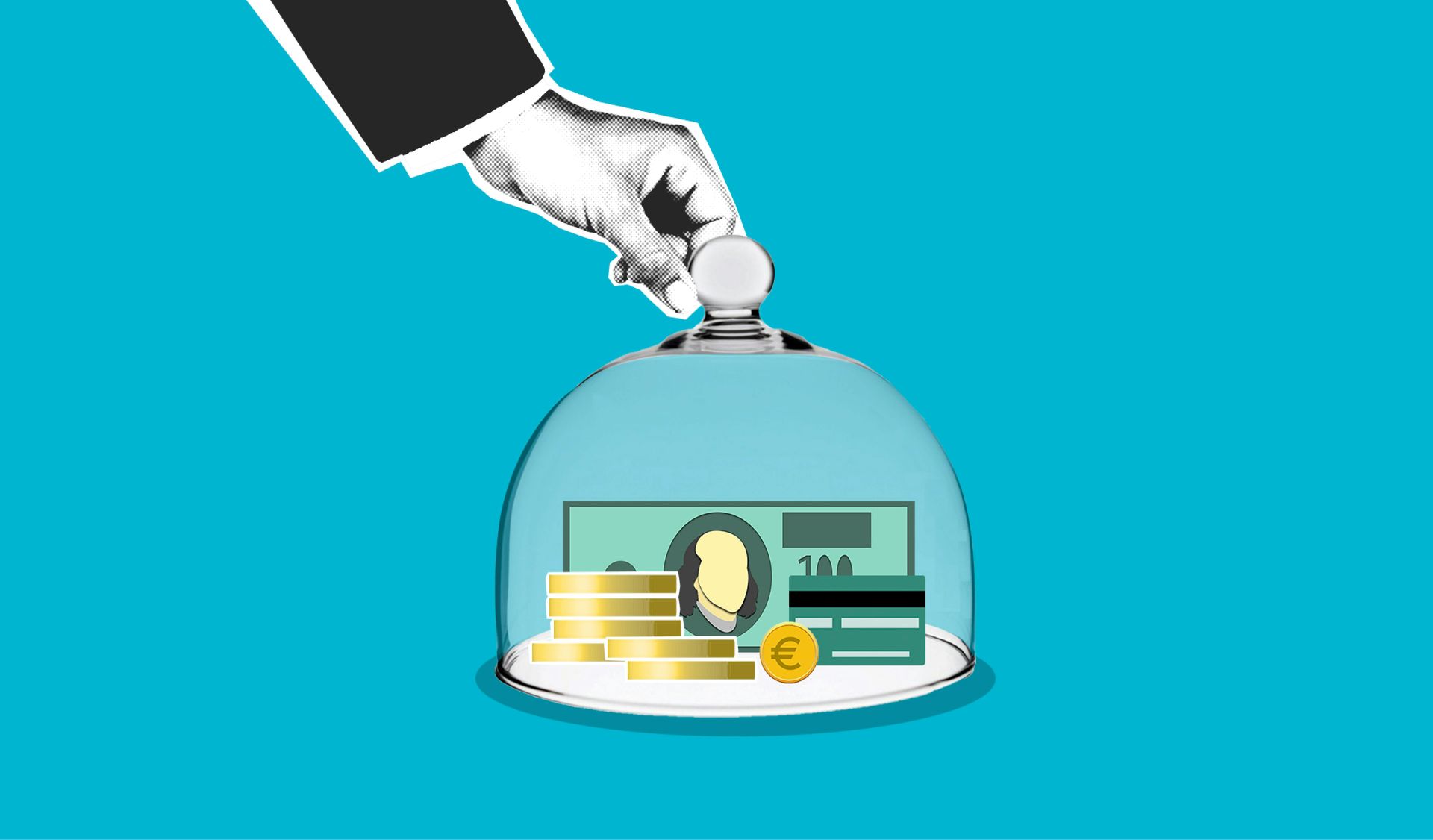
From least expensive to most, here are the best Grocery Stores to Shop at in Canada in a tough economy.
Grocery pricing varies from province to province, even within the same chain. Some stores may have the lowest prices in one region but not in another. Also, a few stores operate exclusively in certain areas of the country, allowing them to offer much lower prices than nationwide chains. Let's explore some of these budget-friendly options.
No Frills
Owned by Loblaws Companies Limited, No Frills operates across Canada except in Quebec. Shoppers can collect points through their PC Optimum card and earn extra points with PC Financial products like the Mastercard. No Frills stands out by offering price matching, which allows customers to get the lowest prices when they find a better deal elsewhere. Their weekly flyer highlights bargains on both food and non-food items, and customers can order groceries online for pick-up, sometimes without extra fees. What sets No Frills apart from other Loblaws-owned stores is their "no frills" concept: no deli counters, no name-brand products, and minimal store displays. This allows them to keep prices low while still offering quality items.
Walmart
Walmart is another affordable option for grocery shopping, with stores all over Canada, except in Nunavut. Although Walmart doesn’t offer price matching, their grocery prices remain competitive. Walmart Supercenters offer a wide range of non-grocery items like clothes, beauty supplies, pet products, toys, and more, making it a convenient one-stop shop. Though certain items might be cheaper elsewhere, Walmart’s overall pricing strategy makes it a popular choice.
FreshCo
Part of Sobeys Inc., FreshCo is a discount chain located in British Columbia, Alberta, Saskatchewan, Manitoba, and Ontario. Known for their price matching and a policy that beats competitors' prices by 1 cent, FreshCo also offers a "double fresh" guarantee, refunding and replacing items if customers aren’t satisfied. Shoppers can earn Scene points with their purchases, and sale items are featured in their weekly flyer.
Giant Tiger
Operating throughout Canada except for British Columbia and Newfoundland and Labrador, Giant Tiger focuses on offering quality groceries at affordable prices. In addition to groceries, Giant Tiger sells clothes, home furnishings, and seasonal products. The store offers online shopping with options for delivery or in-store pickup, and orders over $50 may qualify for free delivery. Customers also benefit from their GT VIP program, which provides perks like exclusive contests and savings at partner establishments.
Maxi
Maxi, also owned by Loblaws, operates exclusively in Quebec. They offer competitive prices, price matching, and online shopping options for pickup or delivery. Shoppers can earn PC Optimum points, and their flyer lists all products eligible for extra points. Like No Frills, Maxi focuses on a no-frills shopping experience to keep prices low.
Save-On-Foods
While Save-On-Foods wasn’t always known for low prices, inflation has led them to become more competitive. They offer price matching and often run special promotions like $1.49 days on select Tuesdays. Save-On-Foods allows customers to collect points through their Save-On-More program, which can be redeemed for free groceries. Their first three grocery pickup orders are free, and delivery is available for added convenience.
PRO-TIP: Buy a reusable cart, or reusable bag so you aren't paying for bags!
Tips for Saving on Groceries
As food prices continue to rise, Canadians are exploring ways to cut costs. Here are some strategies to consider:
Buy in Bulk
Certain items can be cheaper when bought in bulk, and doing so reduces trips to the store, saving on gas. However, it's important to ensure that buying in bulk actually provides savings based on shelf life and usage.
Price Matching
Many stores offer price matching, which allows you to show a competitor’s lower price (either from a flyer or an app) and have the price adjusted at the register. This can be a great way to save while shopping at fewer stores.
Coupons
Both in-store and manufacturer coupons can lead to significant savings over time. Several websites also offer printable or mailed coupons to help reduce your grocery bill.
Shop the Flyers
Planning your meals based on flyer specials can significantly lower your grocery costs. Flyers are a great way to find deals, try new recipes, and discover new ingredients.
Costco vs. Walmart: Which is Cheaper?
This question depends largely on what you’re buying. Costco specializes in bulk items, which can be cheaper if you use everything before it spoils. Products like eggs, cheese, and coffee tend to be more affordable at Costco, while Walmart often offers better deals on household items like paper products and cleaning supplies. The selection at Walmart is broader, but bulk buying at Costco can lead to substantial savings for certain items.
Supercenters vs. Supermarkets
Walmart is considered a supercenter, offering a wide range of groceries and non-grocery items, while supermarkets tend to focus more on groceries. Walmart’s variety of items, from electronics to cosmetics, makes it convenient for shoppers who want to purchase everything in one place.
Price Comparison Apps
Using apps to compare grocery prices can help you find the best deals. Enter your postal code into apps like Flipp or Reebee to see flyers from local stores and price match when you shop. These apps mostly display sale prices, so regular pricing comparisons might require a different approach.
Expensive Grocery Stores in Canada
Now that we’ve covered some affordable grocery options, here are a few stores known for higher prices:
Thrifty Foods
Located in British Columbia, Thrifty Foods offers specialty items you may not find elsewhere. While more expensive, their focus on fresh produce, a full-service deli, and a bakery makes them stand out.
Sobeys
Sobeys, Canada’s second-largest grocery chain, offers high-quality products and excellent service but at a higher cost. Their stores feature a variety of food displays and specialty items, contributing to their premium pricing.
Metro
Metro operates in Ontario and Quebec and is Canada’s third-largest grocer. Their prices may be higher, but they offer a wide range of products, and customers can use their app to access coupons and a rewards program.
Safeway
Though fewer in number now, Safeway stores still attract shoppers due to their excellent customer service and specialty sections like bakeries and florists. Despite higher prices, many customers appreciate the organized layout and well-stocked shelves.
By choosing the right stores and utilizing smart shopping techniques, Canadians can continue to save on groceries despite rising prices.

*Disclaimer: Brand Street Agency is authorized to use goPeer's trademarks and branding solely for marketing purposes related to goPeer’s loan products with prior written consent from goPeer. goPeer Corporation and its affiliates are not responsible for any content, statements, or representations made by Brand Street Agency on this website. Loan approvals are not guaranteed and are subject to goPeer's underwriting policies. Terms and conditions apply. For the most accurate and up-to-date information regarding goPeer’s loan products, please visit goPeer's official website (https://gopeer.ca). Brand Street Agency operates as an independent entity and is not an employee, representative, or affiliate of goPeer Corporation or its affiliates. Brand Street Agency may receive compensation for its services.
goPeer offers unsecured personal amortizing loans throughout Canada in amounts from $1,000 to $35,000 with terms of 3 or 5 years and Annual Percentage Rates (APR) between 8.99% and 34.99%, depending on an assessment of the borrower’s credit profile, financial position, and ability to service the loan. If a payment is unsuccessful, goPeer may charge an unsuccessful payment fee of $50. If a payment is late 30 or more days, goPeer may charge a late payment fee of $25 or 5% of the payment due, whichever is greater. goPeer charges an origination fee included in the advertised APR. There are no other fees on loans. Loans are subject to credit and underwriting approval and lending rules may vary by province. For example, the average borrowing cost paid on a $9,400 unsecured personal loan at an APR of 18.8%, with a 5-year term and bi-weekly payments of $104.80 is $4,794.49.
















